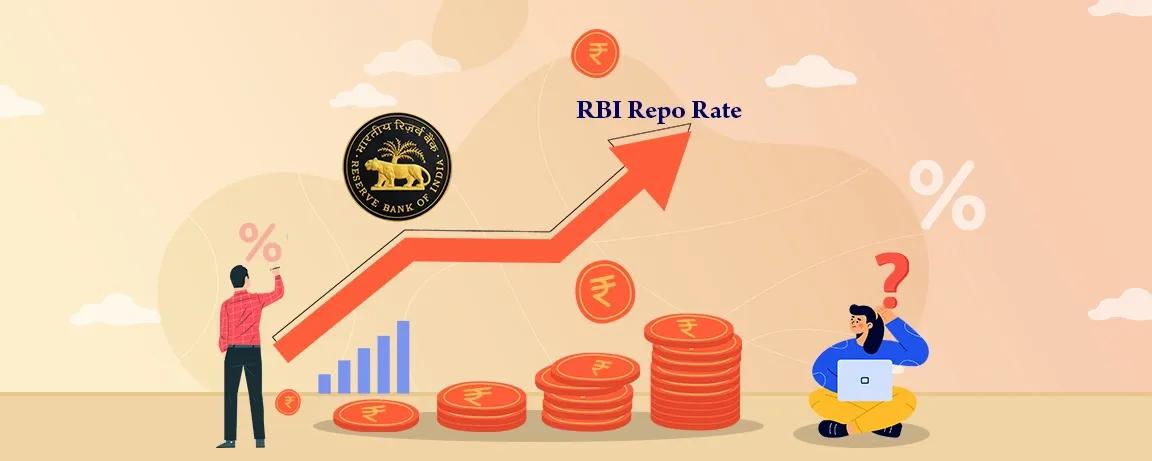Latest Updates from RBI Monetary Policy meet Dec 2022
RBI, in its latest MPC meet has decided to hike repo rate by 35 basis points. This is the fifth consecutive rate hike this year which takes the repo rate to 6.25%. This is only slightly higher than the repo rate around April 2019 (before the onset of Covid 19 pandemic). For 2 years the repo rate remained unchanged until May this year; that’s when the apex bank decided to reduce the cash flow in the market.
What’s important in this Repo Rate hike?
The 35 bps hike is as per market expectations. The positive is RBI has broken the 50-bps rate-hike trend as growth headwinds intensify amid easing inflation pain.
What is the Significance of Repo Rate?
Repo rate (or Repositioning rate) is the interest rate at which the RBI lends to banks in the country. If banks procure funds from RBI at a higher rate the consumer lending will be higher than repo rate with an intent to cover for operating expenses and earn profits. Repo rate increases are intended to suck liquidity from the system, and the reverse is also true. As Repo rates increase, banks will pass on the increase to customers and loans become costlier. Expensive credit dampens consumer demand, resulting in a corresponding drop in demand for goods and services. Hence, there is a drop in prices.
Ripple Effects of change in Repo Rate
This is a world where the butterfly effect is not a myth. Any economic policy change will always have an impact on you. Some might take time to reflect but in some cases the impact is quite evident. Take for example the real estate sector, which was witnessing good pickup in sales due to the low cost of financing, could be impacted by RBI’s rate hike move. As banks increase their interest rate, it will result in a further rise in equated monthly installments (EMIs) for existing borrowers and that will dissuade new home buyers from making any purchase. Even tenure extension options for many existing home loan borrowers would have been exhausted by now and they will be compelled to pay a higher EMI.
Below table shows how the home loan EMI for Rs 50 lakhs for a tenure of 20 yrs fluctuated due to the Repo Rate change
| Effective Month | Repo Rate | Home Loan Rates | Home Loan EMI (in Rs.) |
| December 2022 | 6.25% | 8.55%* | 43,550* |
| October 2022 | 5.90% | 8.10% | 42,134 |
| August 2022 | 5.40% | 7.00% | 38,765 |
| June 2022 | 4.90% | 6.75% | 38,018 |
| May 2022 | 4.40% | 6.70% | 37,870 |
| October 2020 | 4% | 6.60% | 37,574 |
| August 2020 | 4% | 6.95% | 38,615 |
| May 2020 | 4% | 7.55% | 40,433 |
| March 2020 | 4.40% | 8.00% | 41,822 |
| February 2020 | 5.15% | 8.00% | 41,822 |
| August 2019 | 5.40% | 8.40% | 43,075 |
| June 2019 | 5.75% | 8.60% | 43,708 |
| April 2019 | 6% | 8.60% | 43,708 |
*Expected lending rates and EMI as per trends
However, as long as interest rates remain in single digits (mainly within 9.5%) the impact on housing will at best be moderate. If they breach this point, we will see some real pressure on residential sales volumes in the months to come – especially in the affordable and lower mid-range housing segments.
Additional Info: Best Home Loan Interest Rates @8.20%
